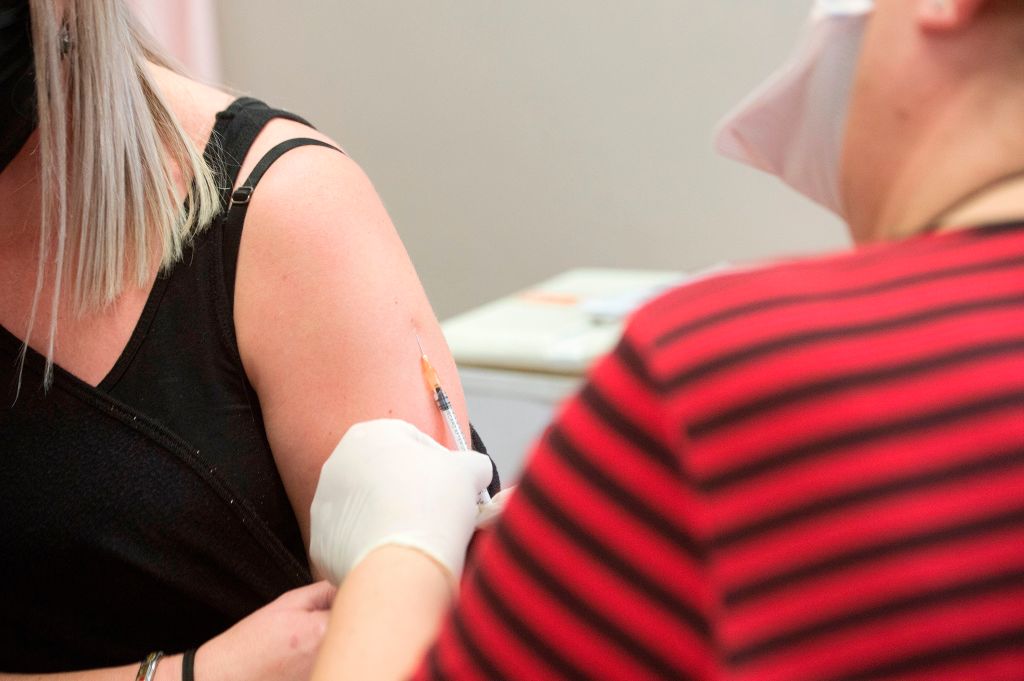
By: ShelbinMS
With America poised to become the next country to approve a Covid-19 vaccine, authorities find themselves facing an ethical dilemma: when to give trial participants who received a placebo the real deal.
The question is most pressing for studies involving Pfizer-BioNTech’s two-shot regimen, which has received emergency approval in Britain and a handful of other countries. The US could follow within days.
On Thursday, the prestigious New England Journal of Medicine published results from a clinical trial involving nearly 44,000 people in the United States and other countries.
Around half were randomly chosen to receive injections containing the companies’ patented messenger RNA molecules, while the rest got saline solutions.
The experiment was “blinded,” meaning neither the volunteers nor their health care providers knew who was given what, a crucial element in ensuring people go about their everyday lives as they would have otherwise done.
Independent researchers analyzing the study waited for volunteers to become infected naturally — unfortunately, owing to the rampant nature of the pandemic, this happened all too quickly — then lifted the hood on the data so that they, and only they, could see which group the sick were in.
The results confirmed that receiving the vaccine reduced the risk of developing Covid-19 by 95 percent compared to not receiving it, and that no serious side effects could be attributed to the drug.
So why isn’t that enough to call off the trial and make sure everyone now benefits?
Ideally scientists still want more data, which would help clarify, for example, possible long-term harms linked to the vaccine.
“If you are a vaccine developer or a scientist, you acknowledge the importance of following people out for as long as you can, to see what the differences are between the vaccine arm and the placebo arm,” Andrew Morris, a University of Toronto professor of medicine, told AFP.
But at some point, he said, “you have to call it” because “one of the aspects of people volunteering into trials is they took one for the team — you need to have some way to be able to repay them.”
Stanford professor Steven Goodman weighed in on the subject Thursday as a high-level committee convened by the Food and Drug Administration discussed the critical issue.
“An ethical dilemma is not a choice between right and wrong, that’s what we write to advice columnists for,” he said. Rather, it was weighing up competing interests.
He argued that, since trial participants are aware that the study is for the benefit of society, they have no absolute right to jump to the front of the line.
Goodman suggested that people who received the placebo be informed on the day that local and national authorities determined people in their age and risk group are eligible.
This would encourage them to stay in the trial since they would be in the “front of their own line,” and it would preserve the controlled nature of the experiment.
Pfizer, for its part, has suggested a similar plan, with the important exception that it would also allow participants to request that they be told which group they’re in even earlier, and offered the vaccine.
Another possibility, said Goodman, would be a “crossover” plan in which people who got the vaccine in the first round would then get the placebo, and vice versa, which would still yield useful data.
There are certain practical considerations.
If the FDA opts for rules that are too onerous, people might just drop out and it would damage confidence in trials moving forward.
What’s more, now that we know all about common side effects of the vaccine, people can guess which group they belonged to.
This might impact how they behave in public and their level of risk-taking behavior.
Placebo participants will receive the vaccine from trial organizers, Moncef Slaoui, chief advisor to the US government’s Operation Warp Speed said in a recent briefing. “The question more is when?”
A legal hard stop to the placebo group would occur when a vaccine receives full licensure, which is expected a few months after emergency approval.
Slaoui added that researchers would still be able to gather long-term data, just without an experimental control.
New puzzles would soon emerge, though. When one or more vaccines have been approved, it may become more difficult to motivate people to sign up for or remain in other vaccine trials.
(AFP)
